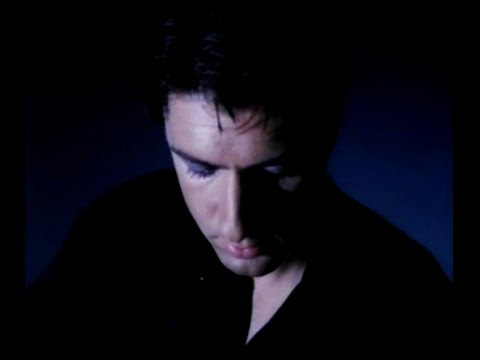You've got to find a way, say what you want to say: the best of Sophisti-Pop
A brief guide to the briefly-lived subgenre
First of all, I’m just gonna say it: Alfred and I coined the term Sophisti-Pop, and I’m damned proud of that. [From the Sophisti-Pop Wiki page: “Kirkham, Neil (2017). "Polluting young minds? Smash Hits and 'high Thatcherism'". Journal of European Popular Culture. 8 (2): 139–152. doi:10.1386/jepc.8.2.139_1. Retrieved 13 December 2018. 'Sophisti-pop' (Inskeep and Soto 2007) is a term now used, retrospectively, to describe a collection of 'intelligent', lavishly produced British pop acts of the mid–late 1980s.[dead link]” ] [Emphasis fucking mine.]
From my introduction to our 2007 Stylus piece “The Bluffer’s Guide – Sophisti-Pop” (which delightfully still exists online thanks to the blessed Internet Archive):
A sub-genre of pop concerned as much with fashion and the slightest touch of jazzbo tendencies as with lyrics and music could only have come from the UK, really—and could only have happened in the 1980s. Intentionally or not, its makers saw themselves on a higher level, making pop that wasn’t just “pop,” that wasn’t of the Stock-Aitken-Waterman school but schooled by Avalon-era Roxy Music (we’ll get to Bryan Ferry, fear not) and the Spandau Ballet of “True” (and little else). Much of this was snotty, all of it was made by performers wearing Armani (or hoping to). Horns were important (even if actually synthesized), smart haircuts moreso, and a certain attitude the most. This was absolutely ebullient stuff with plenty of soaring choruses, even while often taking on depressing lyrical themes (see: Johnny Hates Jazz). Most every major sophisti-popster had one US hit, at most a handful, then no more, while often crafting lengthy careers across the pond; that’s because the Brits appreciate pretty things more than Yanks do. If only we all understood such things.
Sophisti-Pop is where (what we now know as) Yacht Rock met the New Romantics in a wine bar. Instead of Steely Dan, however, the lodestar of Sophisti-Pop is Roxy Music – most specifically, their 1982 Avalon. I was wrong about Spandau, though, because their Sophisti-Pop apex is 1984’s “Only When You Leave”; “True” is just a smidge too soft for these purposes. (As much as much of their debut is firmly in the pocket, this also applies to Breathe’s “Hands to Heaven.”) Sophisti-Pop has to have at least a slight buoyancy to it (cf. godfather Bryan Ferry’s “Don’t Stop the Dance”), and those don’t. The subgenre is also inherently slick, definitely saxy, grown-up music but not necessarily music for grown-ups; most of this had fierce youth appeal. (Except, perhaps, for Basia. Even Sade clicked with cool kids – and I do mean cool kids – early on.)
The caveat here is that while it’s sometimes soulful (a la Yacht Rock), it generally can’t be too soulful. In the playlist included below for your delectation, you won’t find a lot of the big Sade singles, because they’re just too soulful. A certain sense of remove is often necessary in the best Sophisti-Pop - I mean, it’s British, hello. Mustn’t get too emotional. That said, much of the best stuff here is the sound of Brits attempting some version of soul: hello, Paul Weller’s Style Council! (The only big song of this subgenre not by Brits, BTW, is Swiss: Double’s classic “The Captain of Her Heart,” still the only Swiss record to ever make the US top 20. About which…)
Most of this music has sadly disappeared from US radio, in part due to where it ended up on US radio. I asked radio expert Sean Ross about this last year in a Twitt*r exchange:
me: If Smooth Jazz were still an active FM radio format, I feel like [Double’s “The Captain of Her Heart”] … would be the essence of a classic gold title. [W]as it, in the format’s ‘90s glory days? Has it regained any traction now on Soft AC?
Sean: "The Captain of Her Heart" got almost no spins last week. A lot of songs, even those that started as pop or rock, went to Smooth Jazz but never came back when that format dissolved, because they'd been tagged.
Songs by the likes of Basia, Swing Out Sister, and the eternal Sade - generally the female-vox’d Sophisti-Pop - had, and still has, a home on Smooth Jazz (such as it is today; it especially helps that Sade and Basia’s music was much more jazz-adjacent to begin with). I suspect some Sophisti-Pop is still getting airplay in the UK, where pop sounded different in so many ways. But apart from an ‘80s-intensive weekend and/or on satellite (i.e. SXM’s 80s on 8), I don’t hear the likes of “Shattered Dreams” or “Don’t Tell Me Lies” on US radio these days; “Breakout” may be the one exception.
And of course, some of this didn’t hit in the US at all to begin with. Curiosity Killed the Cat only charted once, a #42 peak for debut single “Misfit” (one of their four top 11 singles in the UK!). Level 42 made the top 15 twice here, but “To Be with You Again,” their Sophisti-est single and a UK top 10, was a US nonstarter. Something else important to consider here: just because an artist made some Sophisti-Pop does not mean that everything they made was. For many artists, it was just a single or two, like in the case of Tears for Fears, or Level 42. That said, the entire debuts by Curiosity Killed the Cat, Johnny Hates Jazz, and Swing Out Sister are basically Sophisti-Pop through and through.
I don’t have a pithy wrap-up to this; I just passionately love Sophisti-Pop, and want you to, too. I mean, the British intersection where music is made that can sit just as easily alongside both Yacht Rock and Smooth Jazz? That’s got my name engraved in it.
Sadly missing from streaming is the Christians’ apex, their Isley Brothers cover which works despite, well, everything:
More perplexingly not on streaming - oh, rights issues! - is Danny Wilson’s gorgeous sigh, “Mary’s Prayer.” How this became a US hit (#23!) I do not know, and I was there at the time.



